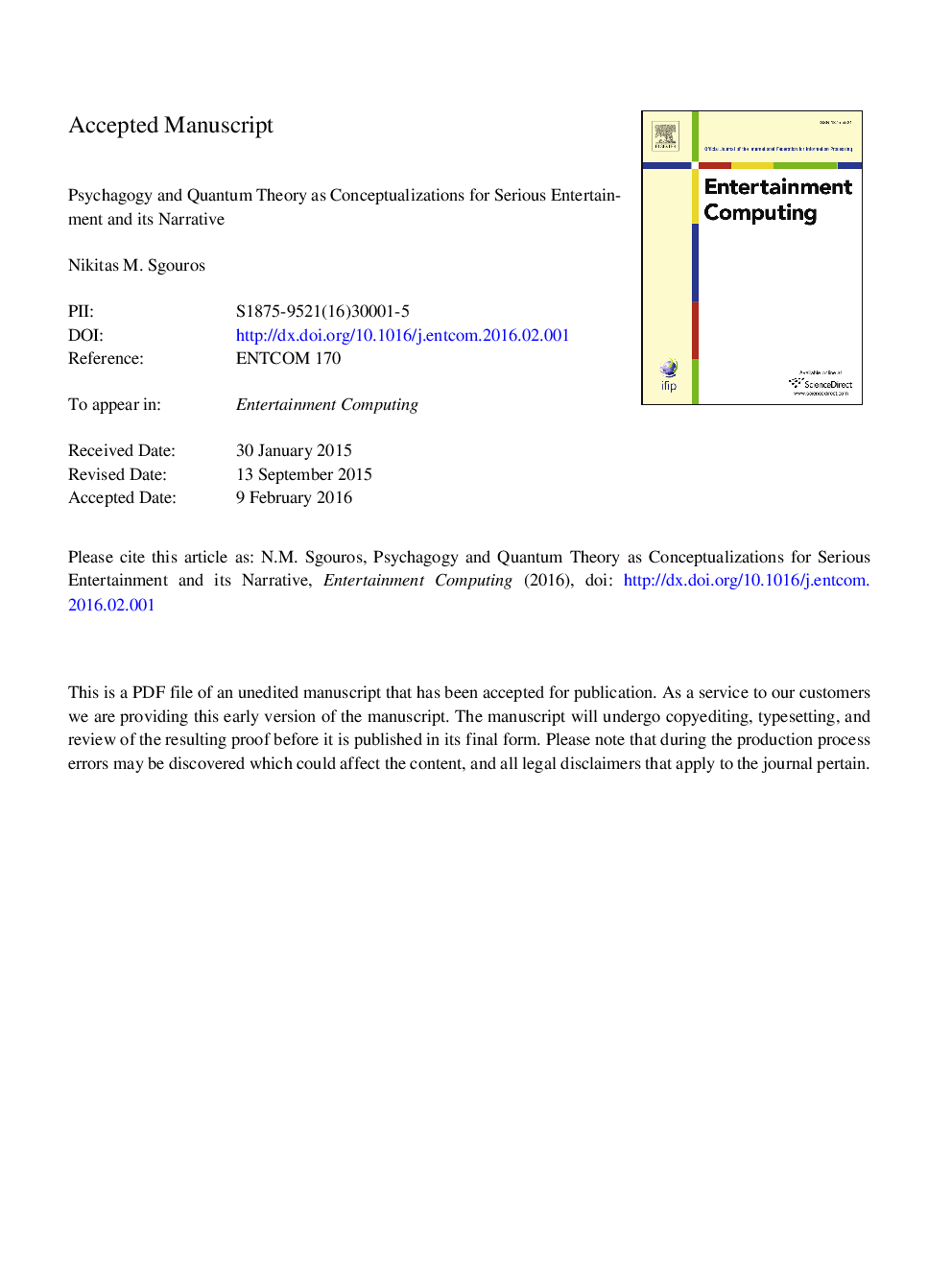| Article ID | Journal | Published Year | Pages | File Type |
|---|---|---|---|---|
| 6854630 | Entertainment Computing | 2016 | 38 Pages |
Abstract
We refer to serious entertainment using the hellenic term psychagogy which literally means 'education of the soul'. Based on Aristotle's definition of tragedy we define psychagogy as the enactment in a complete form of events that are inherently significant and their consequences are perceived in a deep and profound way. We then turn our attention to narration as one of the main forms of psychagogy. In order to capture subjective elements in the structure and dynamics of narratives we use concepts from quantum theory. We describe how the notions of superposition, entanglement, interference and measurement can be applied to represent beliefs, decisions and actions of the protagonists in a computational narrative event and pinpoint potential synergies between these two fields. We apply these ideas to alternative kinds of narratives such as aristotelic or metaleptic forms exploring issues related to plot interactivity and provide examples for each one of them. Finally, we describe the implementation of these ideas in a novel special-purpose language called QuNL for embedding quantum computational concepts in digital narratives.
Keywords
Related Topics
Physical Sciences and Engineering
Computer Science
Artificial Intelligence
Authors
Nikitas M. Sgouros,
